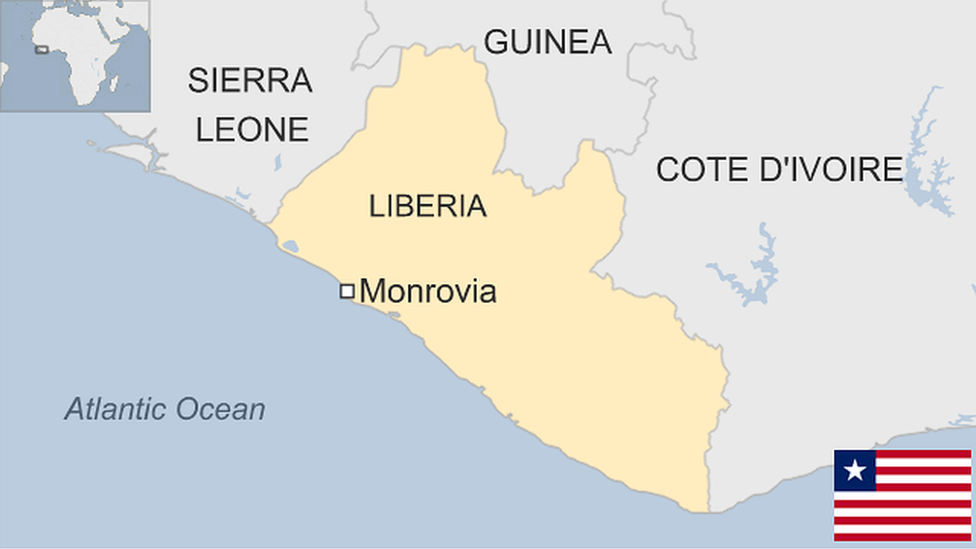In pictures: Life inside Liberia's archaic jails
- Published
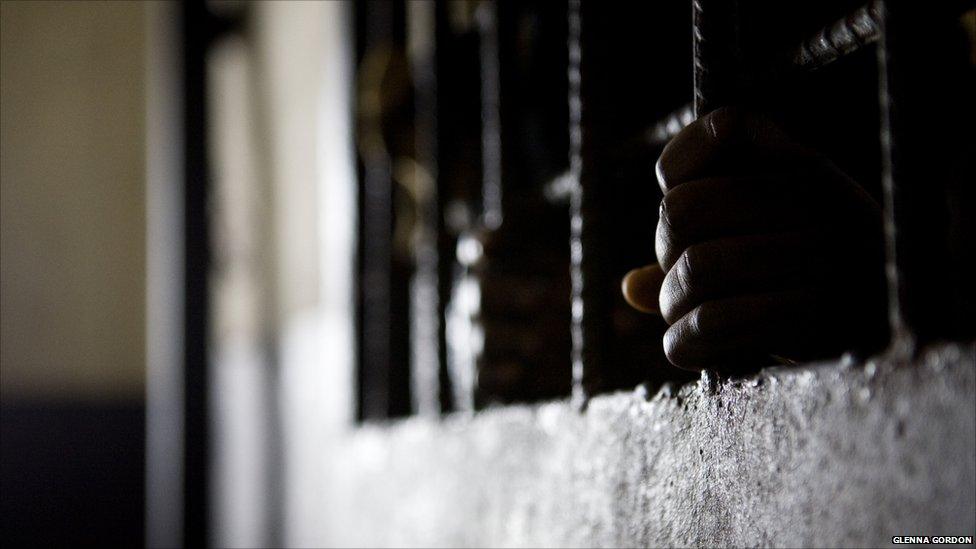
Some prison conditions in Liberia are so poor that they violate basic human rights, with overcrowded, dirty cells, inadequate food, water and healthcare, Amnesty International says in a new report. Monrovia Central Prison, one of the West African country’s 15 facilities, was designed to hold 374 inmates but in July held 839.
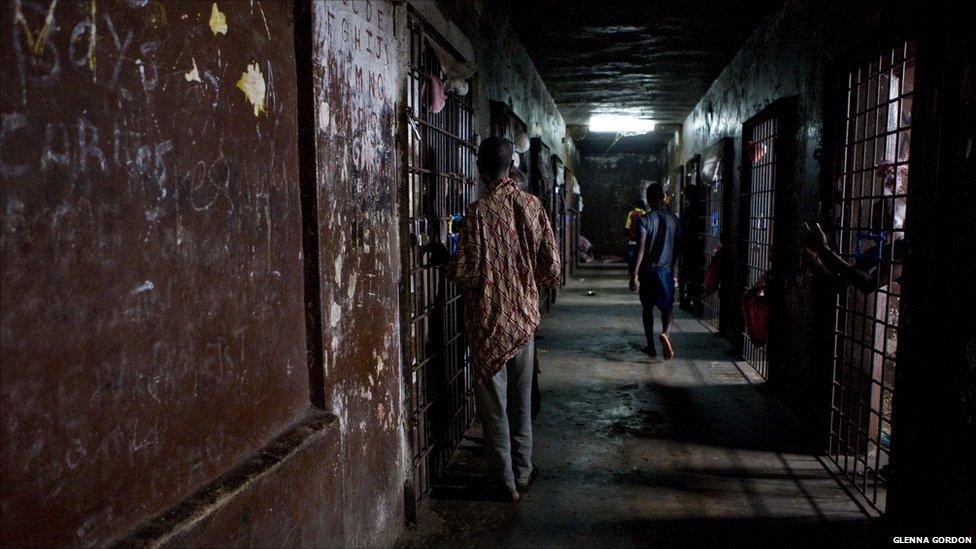
“Inmates can suffer permanent damage to their physical and mental health as a result of their incarceration and most haven’t even been convicted of a crime – they’re simply waiting for a trial date,” Amnesty's Tawanda Hondora said. The report - Good Intentions are not Enough - describes conditions in four Liberian jails.
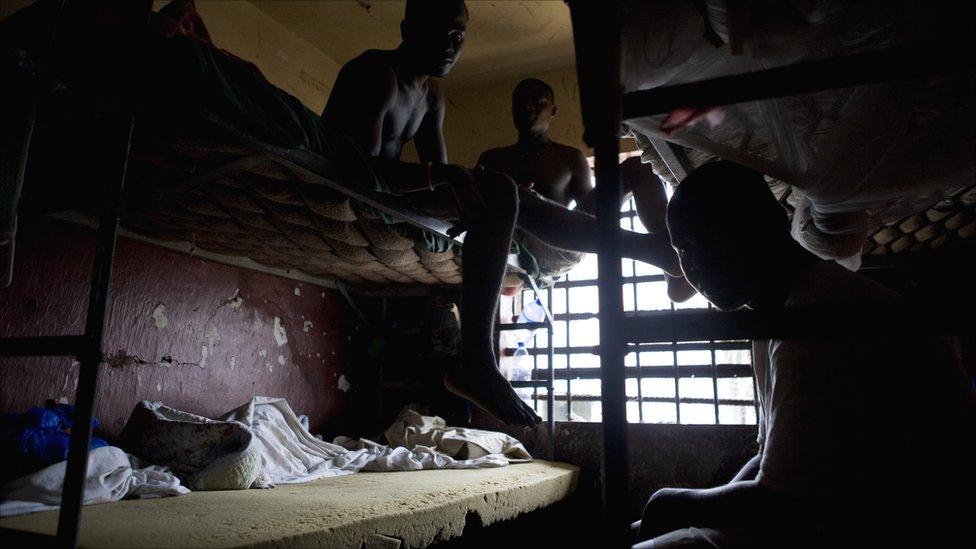
Cells in Monrovia intended for two to four inmates can house more than 10. A maximum of six beds are in each cell; some have fewer and not every bed has a mattress. Those without sleep on the floor. “In some cells there isn’t room for all inmates to lie down at the same time so they sleep in shifts,” Mr Hondora said.
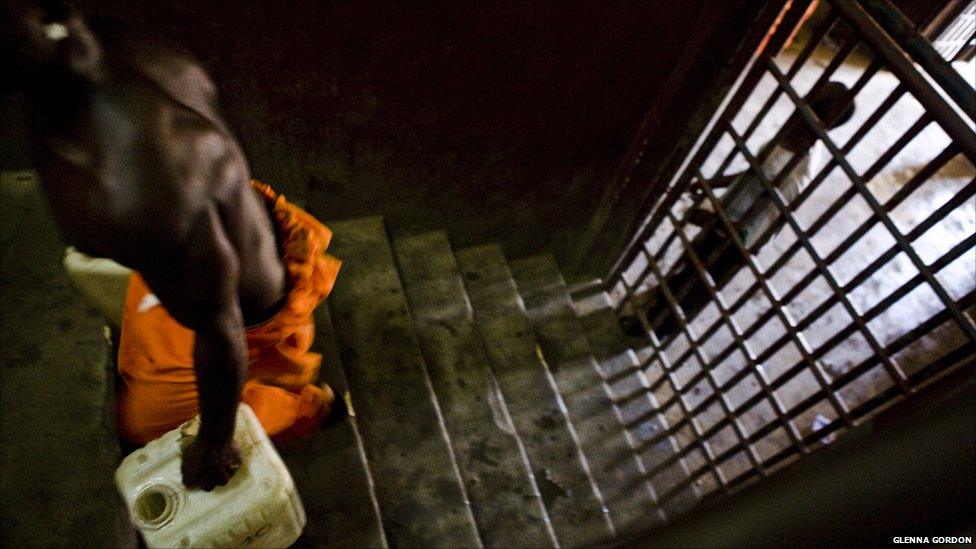
“There was no running water in any of the prison facilities we visited and the smell of sewage is overwhelming in most of the cells," he said. In Monrovia Central Prison, inmates take turns collecting buckets or jerry cans from the two water pumps.
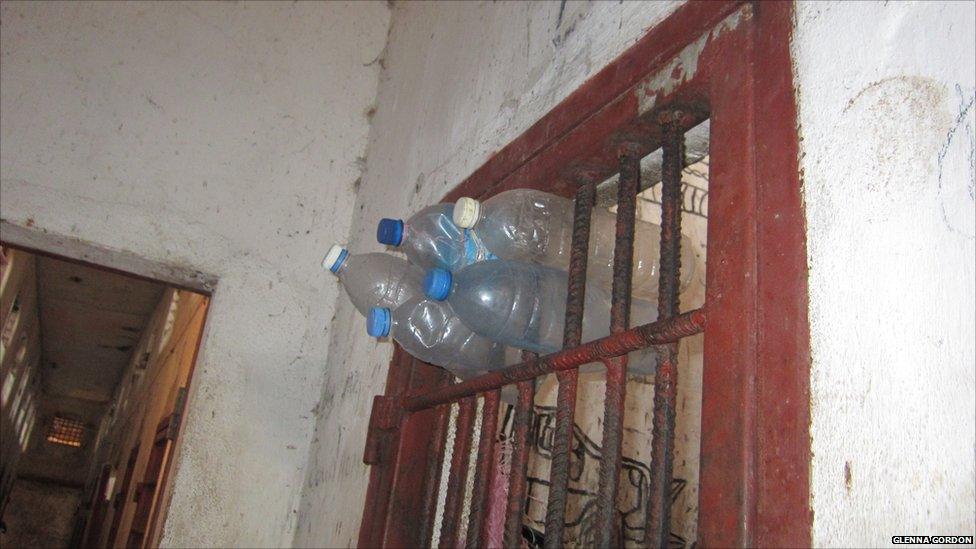
Prisoners in Monrovia Central Prison without access to running water put their bottles through the cell bars so they can be filled by inmates who are allowed outside. Information Minister Cletus Sieh told the BBC there was some overcrowding but said the problems had been exaggerated and that the situation was improving.
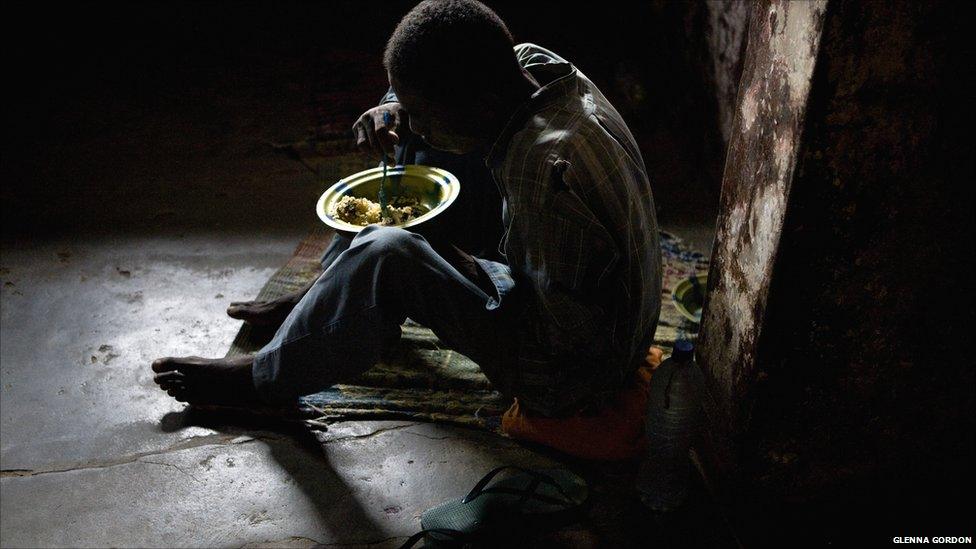
At Monrovia Central Prison, Amnesty says prisoners receive one meal a day. Many complained during the visit about the small amount of sauce with their rice and that it was not enough to fill them up.
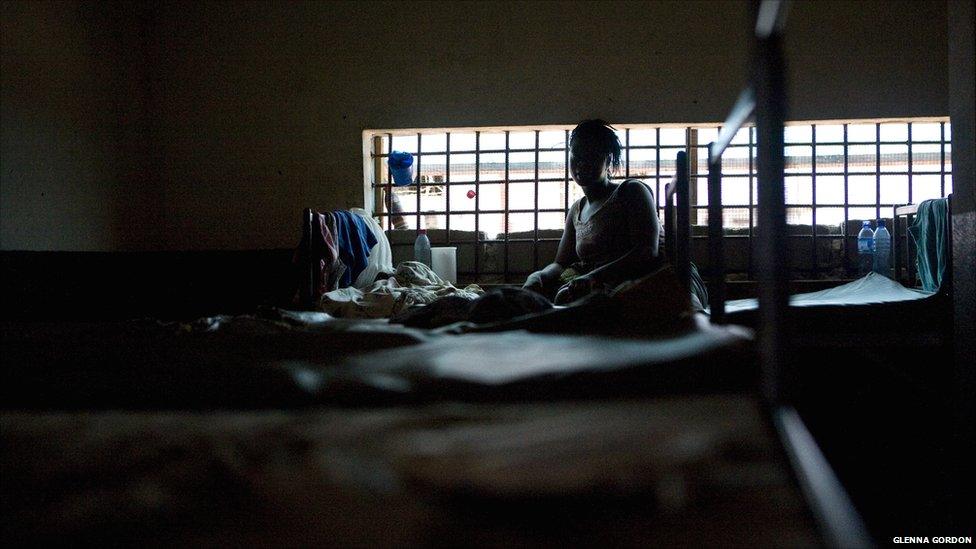
The women’s cells at Monrovia Central Prison are less crowded than the men’s. Amnesty says the facility has taken some positive steps to improve sanitation, but the women complained of a lack of clean water and soap, as well as lack of privacy in the toilets and for bathing.
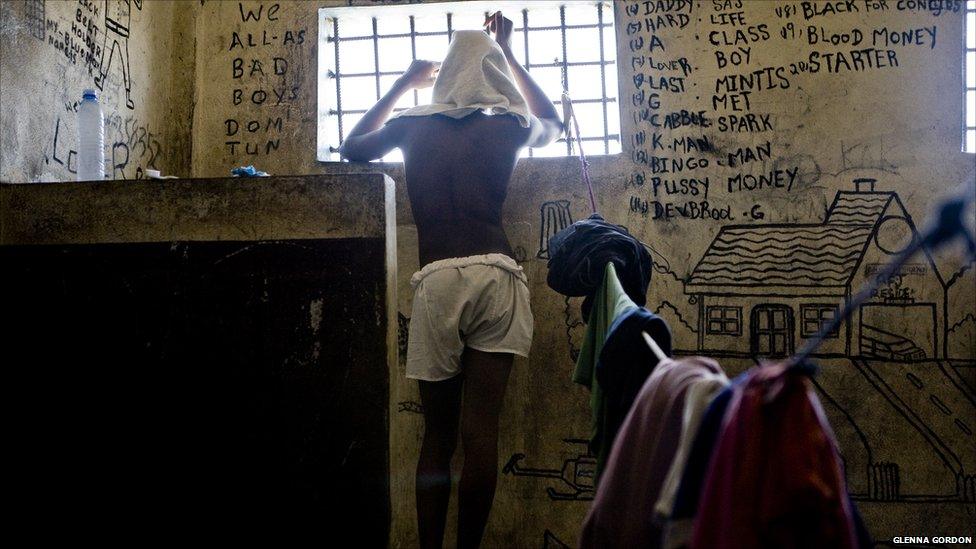
The drawings and messages in this cell are mostly written with a black powder made from the ground-up innards of used batteries. Liberia’s government has been attempting to overcome the legacy of a brutal 14-year civil war which ended in 2003. But Amnesty said more needed to be done to meet prisoners’ needs.
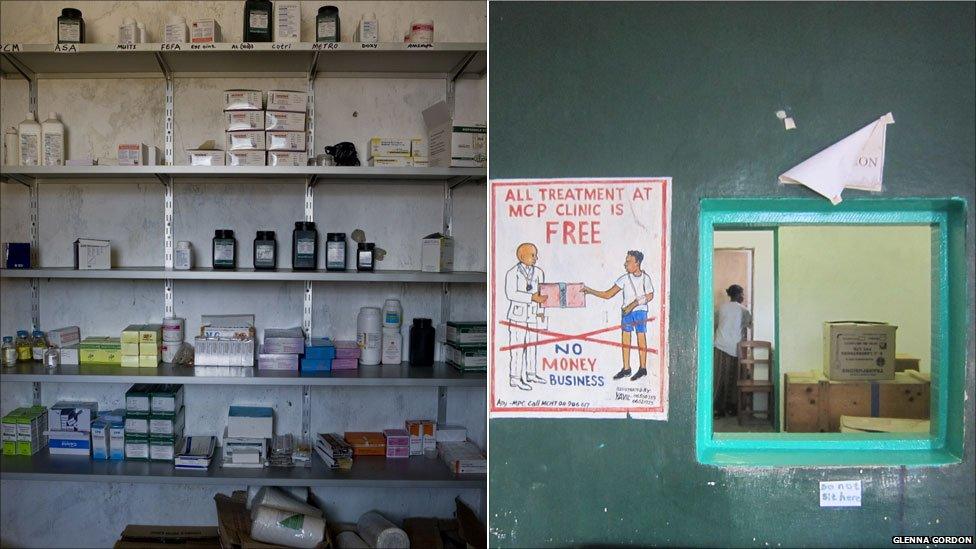
The clinic at Monrovia Central Prison provides free health care, but lacks essential medicine and staff. Amnesty says common conditions such as malaria, skin infections and eye problems are often not treated and inmates are only transferred to a hospital in an emergency.
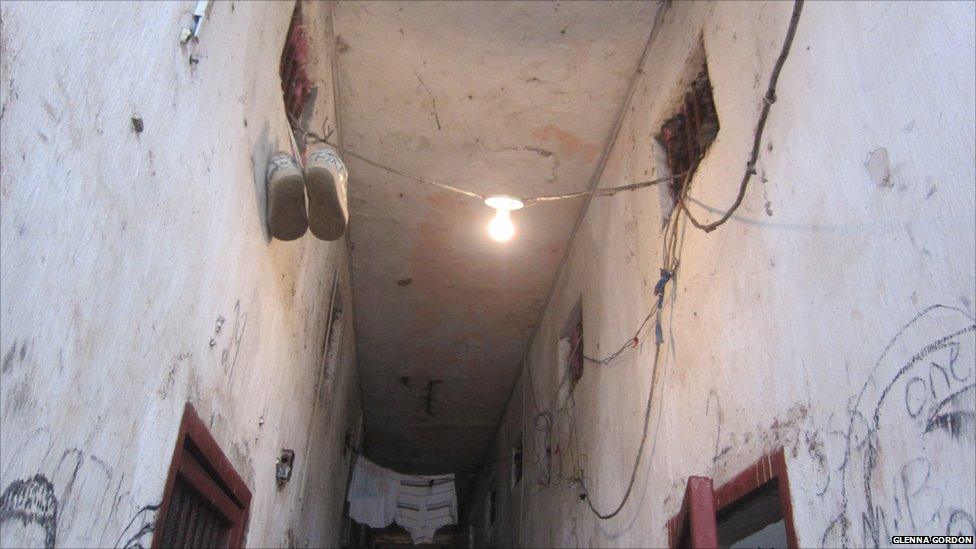
“In all circumstances the government has a clear and binding obligation not to expose prison inmates to conditions that constitute cruel, inhuman and degrading treatment. Immediate action is needed to improve conditions, including access to health care, for Liberia’s prison inmates," Mr Hondora said.
- Published13 February 2024
